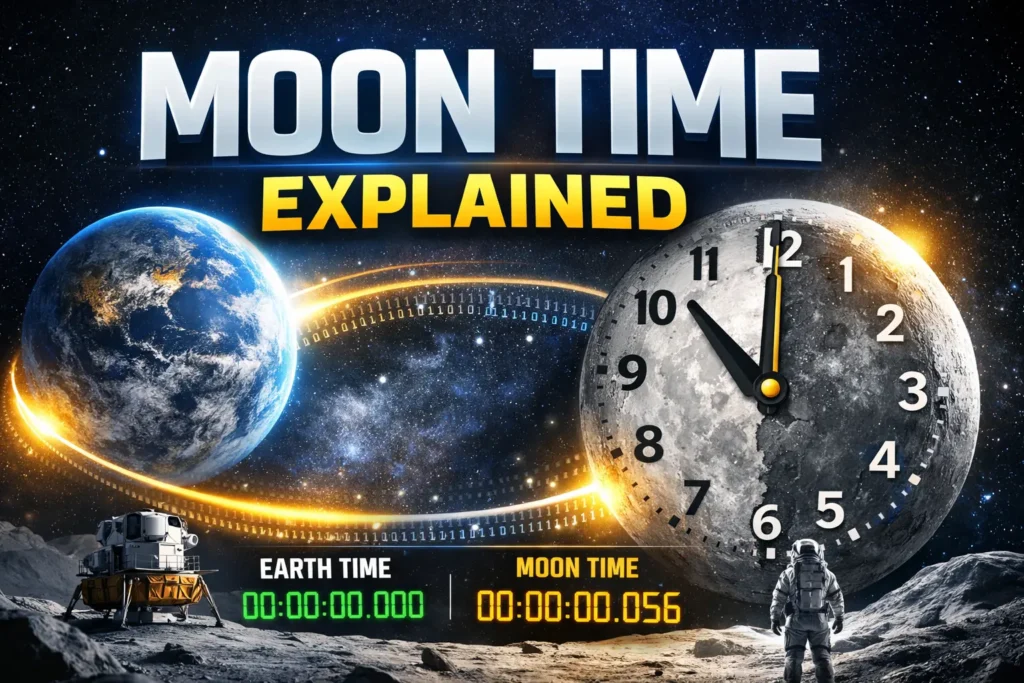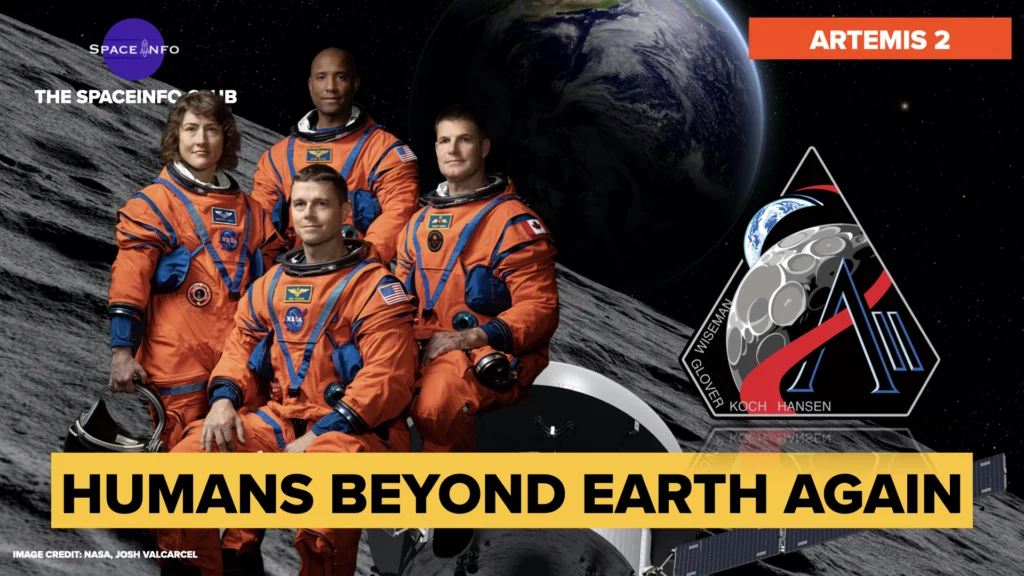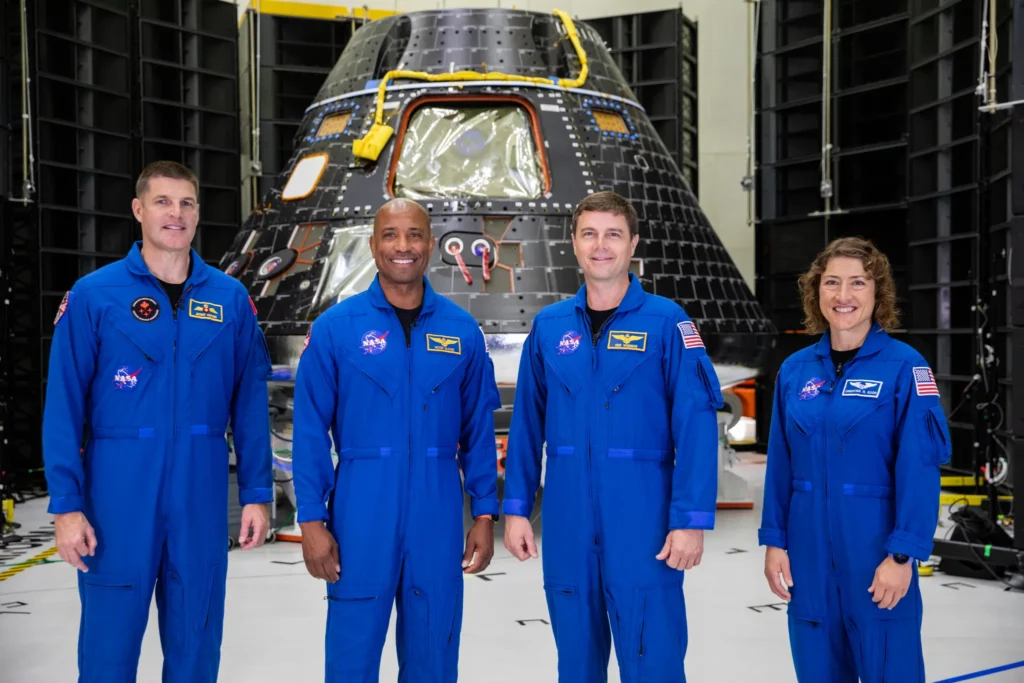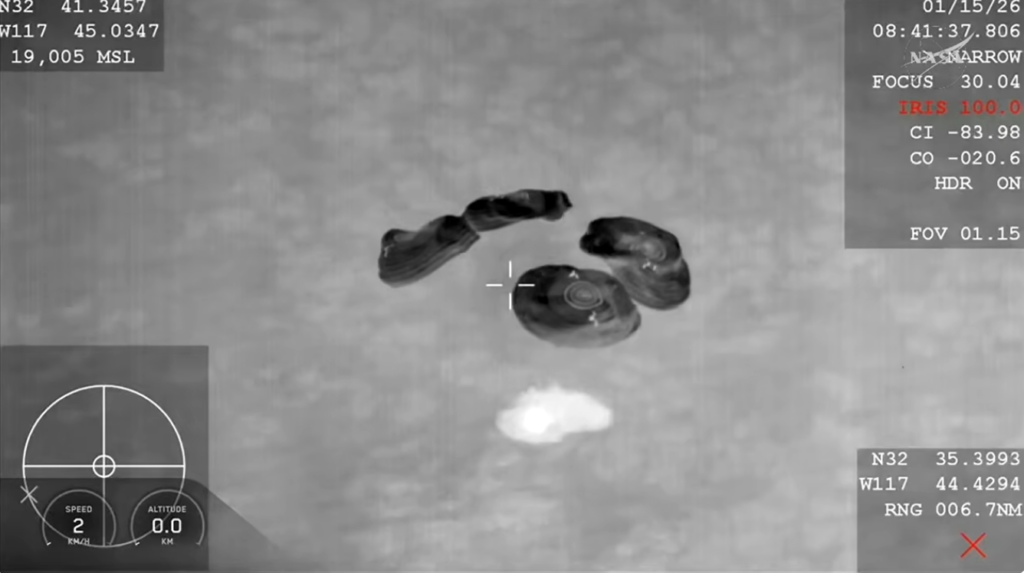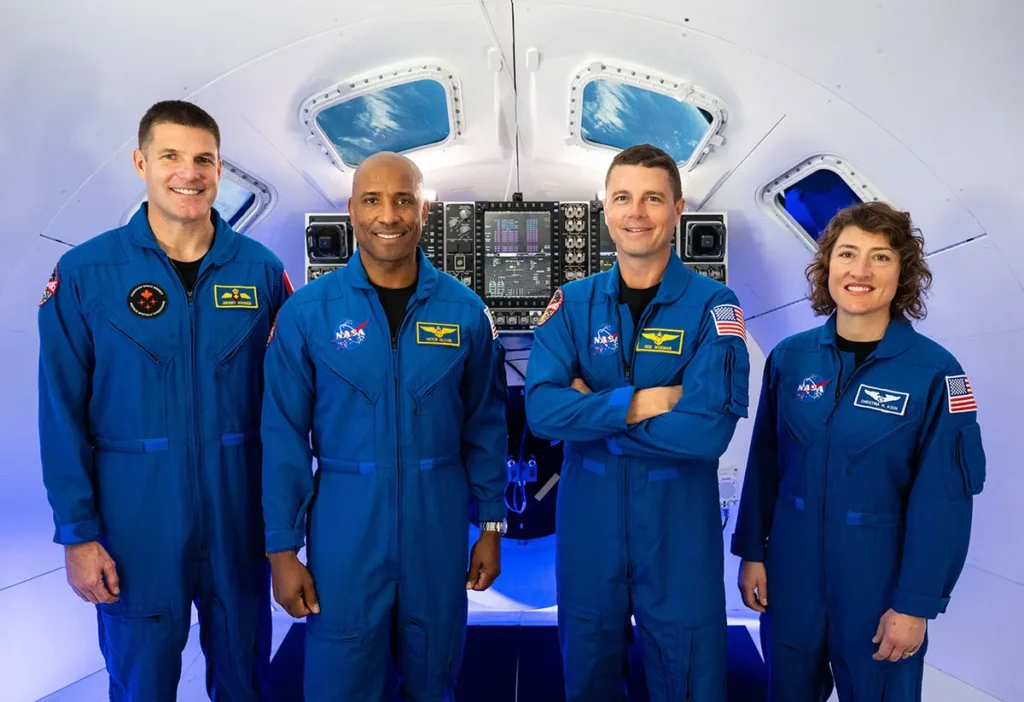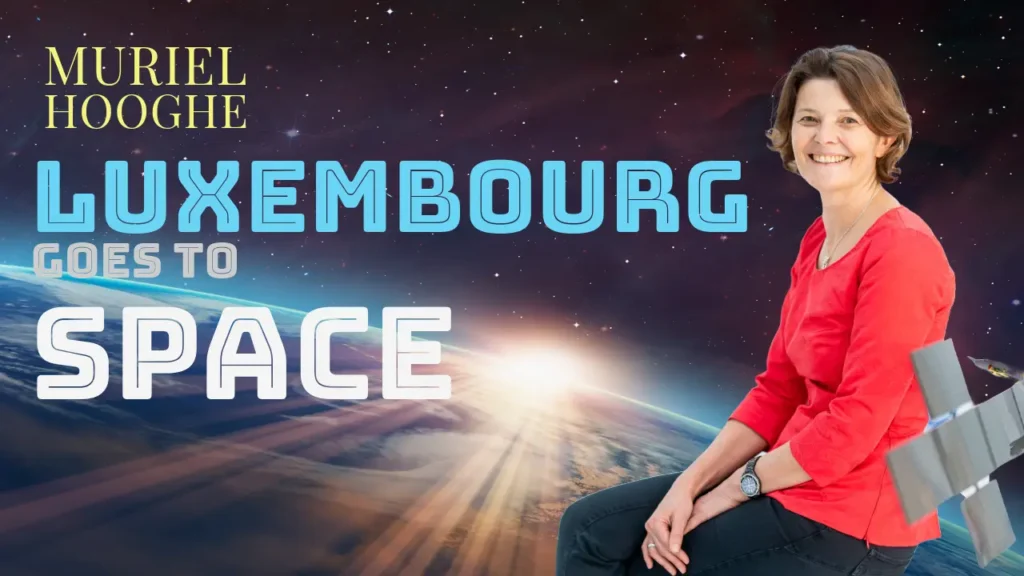
Muriel Hooghe
Senior Project Manager at Luxembourg Space Agency
We recently had the pleasure to ask Dr Hooghe some questions about her job at the Luxembourg Space Agency and here is the full interview. Hope you’ll enjoy reading those words as much as we did, thank you so much Dr Hooghe: hope to have you back again at the SpaceInfo Club!
Can you share your journey and experience that led you to become a lecturer at the University of Luxembourg and a senior project manager at the Luxembourg Space Agency?
After finishing my PhD in Physics, I got a job with SES. It was a bit by chance as my background wasn’t in space (my PhD was in non-linear phenomena), but the job required good physics, maths, mechanics, and software skills, and it sounded exciting. I wasn’t disappointed: my new ‘space job’ was in the Flight Dynamics section that is responsible for station-keeping (i.e maneuvering for orbital control) of the SES satellites. At that time, SES only had 6 satellites. We were also responsible for the development of the tools (software) for the station-keeping, and over the years we developed and automated the processes be able to control a fleet of over 50 satellites with a team that wasn’t much larger than when I started. So basically, that’s how I grew ‘roots’ in the space sector. Over time I moved internally in SES to work on Contingency Planning, and then in Frequency Coordination. And in 2021 there was this opportunity at the recently created Luxembourg Space Agency to work on Space Safety. I had been with SES for almost 25 years and thought it would be an excellent opportunity to get more insight to the rapidly growing space ecosystem in Luxembourg. And indeed, it is!
My new ‘space job’ was in the Flight Dynamics section that is responsible for station-keeping (i.e maneuvering for orbital control) of the SES satellites.
The lecturer role is one I seized when Luxembourg created the Interdisciplinary Space masters. I had really enjoyed teaching graduate students during my PhD, and reached out to the university to see if they were looking for lecturers. They needed someone to cover the Space Project Management course, and I thought this would be a great opportunity to share my experience with students.
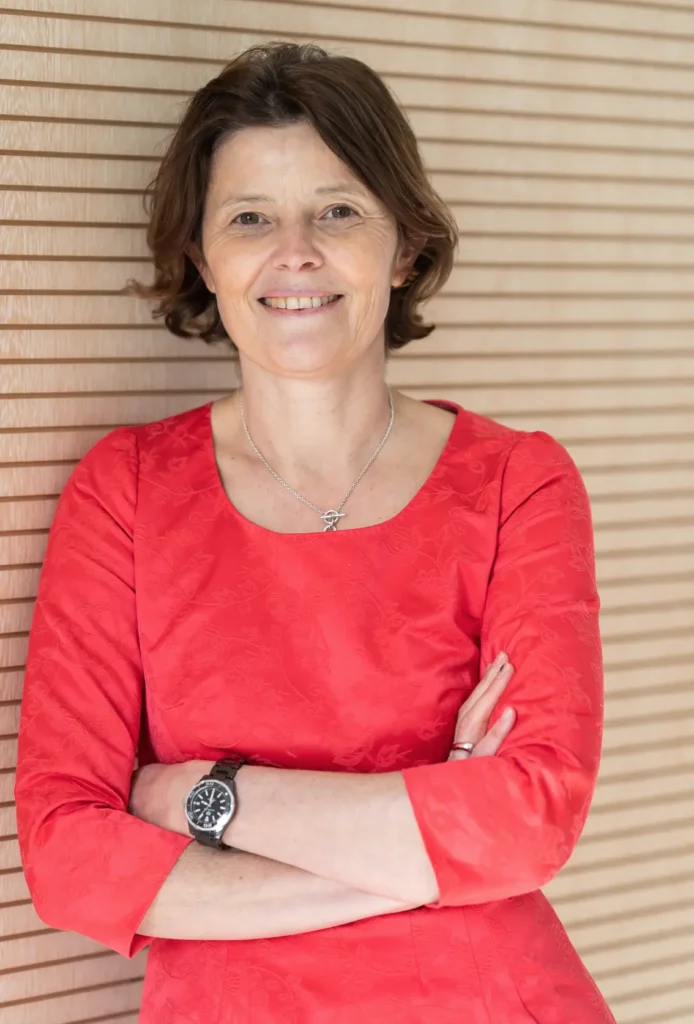
As a senior project manager at the Luxembourg Space Agency, what are some of the key responsibilities and challenges you face in overseeing space projects?
My role at the LSA is twofold. First of all, I support companies that want to develop a business related to space safety in Luxembourg. And in the other role, I represent Luxembourg at the relevant ESA and EU committees. There are challenges in both:
Overseeing space projects is a balancing act of understanding complex technologies, identifying the potential commercial outcomes, and finding ways to support these developments. Most of the new actors in Luxembourg are startups with ambitious plans, limited budgets, and small teams. Helping them to get the right financing schemes, following their developments as they grow is different for each case, so there’s a real need to tailor our approach to each specific project.
Luxembourg has positioned itself as a key player in the space economy, and to stand out as a small country at ESA and EU meetings requires clear goals and good collaborations. The aim is to have an impact on the topics that we decide to support, and with the recognition we see internationally, I think we’re doing a good job!
Luxembourg has been making significant strides in the space industry. Could you highlight some of the notable projects you’ve been involved in and their impact on the country’s space endeavors?
In 2022, Luxembourg updated its space strategy, focusing on sustainability. This may not seem very original these days, but the approach we have to space sustainability is unique, with four pillars: Sustainability in Space, Sustainability on Earth, Sustainability of Space Resources, and Economic sustainability.
The topics I follow are related to Sustainability in Space, and we are supporting companies with projects that could be groundbreaking. One of them is NorthStar who just launched four satellites to monitor space from space and is developing a suite of tools for conjunction analysis in Luxembourg. With the increased concern around space debris, this could bring Space Situational Awareness techniques to a new level.
I am also following two companies that are involved in in-orbit-servicing: Clearspace and LMO. They are developing technologies and services that will create new opportunities in space such as satellite refuelling, in-orbit repair or manufacturing, debris removal etc.
How do you balance your roles as a lecturer and senior project manager, and how do these two positions complement each other in your career?
Balancing the two roles can be challenging time-wise, but it’s definitely worth it. My role at the LSA is my ‘main job’, and thanks to great flexibility from LSA and the university, we manage to find suitable slots for the lectures. Engaging with the students is always fun, they have a level of creativity and enthusiasm that never ceases to impress me. Being an active project manager allows me to include stories from my work experience to illustrate the teaching topics!
Also, one the goals of the LSA is to develop the talents for our space ecosystem – the Space Masters was created as an LSA initiative – so it’s great to have direct insight to how this is growing in Luxembourg. The Space Master’s has been active for 5 years, I see some of my students take up roles in space companies in Luxembourg, and it’s always a real reward to see these successes!
Moon Time: Why the Moon Has Its Own Clock and Why It Matters for Future Exploration
Artemis II: What’s about
Spacewear Introduces SFB1: Space Research Driving High-Performance Footwear on Earth
Artemis II: Humanity’s Next Giant Leap — Meet the Pioneering Crew
NASA Conducts First Medical Evacuation from the International Space Station
Artemis II: Humanity’s Next Giant Leap Draws Near
In your opinion, what are the current trends and challenges in the field of space exploration and how is Luxembourg positioning itself to address these issues?
Many countries are currently planning a return to the Moon, and Space Exploration will be the focus of the many upcoming developments in Space. Luxembourg has signed the Artemis Accords, and with its Space Resources initiative, Luxembourg shows its ambition to play a role in the sustainable exploration of space. We have several players who are developing lunar rovers and initiatives related to in-situ resources. These, together with the evolution of in-orbit servicing techniques that may evolve to in-orbit manufacturing and/or in orbit recycling will have a role to play in the field of space exploration.
As a lecturer, how do you incorporate real-world experiences and insights from your work at the Luxembourg Space Agency into your teaching methods to benefit your students?
This is the fun part about teaching Space Project Management. I can adjust the course to cover new experiences, incorporate stories from my career. PM can seem to be a relatively boring topic, but if you use actual projects to illustrate it, you can see the importance of having a method to navigate through your projects. In the course, we cover aspects that go from satellite re-orbiting at end of life to pitching mini projects for humanitarian aid using space solutions… all have been inspired by projects I worked on or that some colleagues worked on and shared with me.
ClearSpace is indeed a space company based in Luxembourg, with a specific focus on space debris removal. Here’s an overview of the company:
Mission: ClearSpace’s primary mission is to address the growing problem of space debris. Space debris, also known as space junk, refers to defunct satellites, spent rocket stages, and other fragments orbiting the Earth. These debris pose a significant risk to operational spacecraft and satellites in orbit.
Origin: ClearSpace originated as a project at the École Polytechnique Fédérale de Lausanne (EPFL) in Switzerland. It was initially conceived as a response to the European Space Agency’s (ESA) call for proposals for the world’s first mission to remove space debris.
Founding: ClearSpace was officially founded in 2019 as a spin-off from EPFL. The company was established to commercialize the technology and expertise developed during the EPFL project.
Leadership: The company is led by a team of experts in space engineering, robotics, and business management. Leadership often includes individuals with backgrounds in academia, industry, and government space agencies.
Technology: ClearSpace is developing innovative technologies for capturing and removing space debris from orbit. Their approach typically involves deploying specialized spacecraft equipped with robotic arms or nets to capture and deorbit debris safely.
Government Support: Luxembourg, known for its supportive policies towards space exploration and technology, has been a key supporter of ClearSpace. The Luxembourg Space Agency (LSA) has provided funding and other forms of support to help advance the company’s mission.
Collaboration is crucial in the space industry. Can you discuss some of the collaborative projects you’ve been a part of and the lessons learned from working with diverse teams in the international space community?
Collaboration is certainly key in space because of all the components that can be involved in a single project!
During my SES career, I managed the transition of customers from one satellite to another as the ‘old satellite’ was being retired. The customers were located all over the world, and the interactions involved internal and external discussions with dozens of people to identify the options for the transitioning of the service. The key to the success was respecting and listening to everyone. Diversity came in terms of language, culture, but also from the backgrounds. For engineers, it is sometimes easier to exchange with an engineer from the other side of the world who speaks another language and is in a different time zone, than with a salesperson from your hometown! The vocabulary, ways of working can be so different. It sometimes takes some trial and errors finding out how to best communicate with whom, but overall, I must say it always worked really well. The key is working towards a common goal – all the rest can be worked around!
Space tourism refers to the concept of private individuals traveling to space for recreational, leisure, or tourism purposes. While space travel has historically been the domain of government space agencies and trained astronauts, recent advancements in technology and the emergence of private space companies have made the idea of space tourism increasingly feasible. Here are some key aspects of space tourism:
Suborbital Tourism: Suborbital space tourism involves brief journeys to the edge of space, typically reaching altitudes above the Kármán line (100 kilometers or 62 miles), which is widely considered the boundary of outer space. Companies like Blue Origin and Virgin Galactic are developing suborbital space tourism vehicles designed to carry paying customers on short, high-altitude flights to experience weightlessness and see the curvature of the Earth.
Orbital Tourism: Orbital space tourism involves longer-duration trips into Earth’s orbit, potentially including stays aboard space stations or other orbiting habitats. While orbital tourism opportunities have been limited to date, companies like SpaceX have announced plans to offer commercial missions to orbit, including trips around the Moon and stays aboard private space stations.
Luxembourg has been actively promoting commercial space activities, such as asteroid mining and satellite servicing. How do you see these initiatives shaping the future of space exploration, and what role does the Luxembourg Space Agency play in fostering such developments?
Humanity depends on space and will continue to do so: be it using space to improve life on Earth, or through developments in space, it seems clear that the future will see more space related endeavors. This will not be possible without a more sustainable approach to space, and In-Orbit-Servicing and space resources utilization will be necessary if we want to have a more sustainable space value chain. Repairing, refuelling, recycling are all keys to a more circular approach to space; space resources utilization will be further down the road but will bring autonomy in space to the next level.
The LSA fosters these developments in two ways: we encourage such projects at ESA level, and we support projects in these fields at a national level.
Moon Time: Why the Moon Has Its Own Clock and Why It Matters for Future Exploration
Artemis II: What’s about
Spacewear Introduces SFB1: Space Research Driving High-Performance Footwear on Earth
Artemis II: Humanity’s Next Giant Leap — Meet the Pioneering Crew
NASA Conducts First Medical Evacuation from the International Space Station
Artemis II: Humanity’s Next Giant Leap Draws Near
Market Potential: Despite the challenges, there is considerable excitement and interest surrounding the potential for space tourism. Market studies suggest that there is a sizable market of individuals willing to pay for the experience of traveling to space, and as technology advances and costs decrease, the space tourism industry could see significant growth in the coming years.
With the growing interest in space tourism, how do you foresee the involvement of Luxembourg in this emerging sector, and what potential contributions can the country make to the evolving landscape of space travel?
To my knowledge we haven’t positioned ourselves on the Space Tourism front. Even though I would really love to see Earth from outer space, I have mixed feelings about space tourism.
As both a lecturer and a senior project manager, what advice do you have for individuals aspiring to pursue a career in the space industry, and what skills do you believe are crucial for success in this dynamic field?
My advice would be to go for it, you will love it!
The space sector needs more engineers, young engineers with knowledge of new technologies, with creativity and problem-solving skills. This is really essential: one thing hasn’t changed, “space is hard”, excellent scientific/engineering background is essential if you want to develop lunar rovers, robotic arms, sensors, new material etc
We will also need regulators with a good understanding of the space industry. There is still a lot to be done in terms of space regulation.
But even if you are not an engineer or a lawyer, there are roles in the space industry for many profiles.
And the sector certainly needs more women, so calling out to the women out there who would like to work in space, don’t hesitate!
Overall, space tourism represents an exciting frontier in human exploration and offers the possibility of opening up access to space for a new generation of adventurers, researchers, and explorers.

